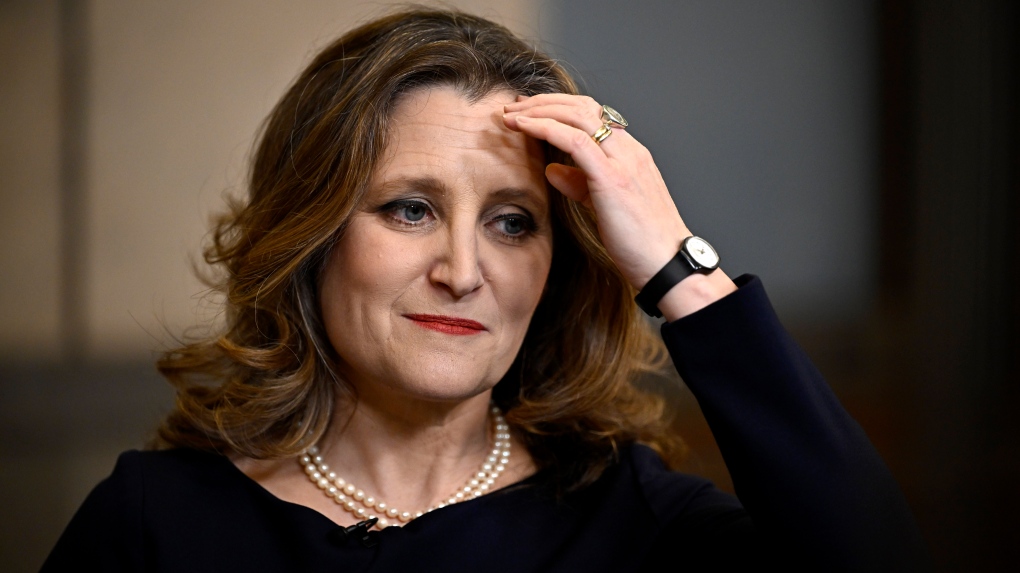News
Gymnasts Biles, Maroney demand justice in botched FBI sex abuse probe

|
|
WASHINGTON (Reuters) –Olympic gymnast McKayla Maroney on Wednesday told U.S. lawmakers she feels betrayed by FBI agents, after they failed to investigate former USA Gymnastics doctor Larry Nassar, despite her telling them he had sexually abused her.
FBI Director Chris Wray told the Senate panel that the actions of the agents who botched the investigation are inexcusable, and he announced that one of the agents “no longer works for the bureau in any capacity.”
“I’m deeply and profoundly sorry,” Wray said.
Maroney is one of four athletes, along with Simone Biles, Aly Raisman and Maggie Nichols, who testified to the Senate Judiciary Committee as it probes the FBI’s mishandling of the investigation.
Maroney recalled how in 2015 she spent three hours on the phone telling the FBI the details of her story that her own mother had not even heard, including accounts of sexual abuse she endured during the Olympic games in London by Nassar, whom she described as “more of a pedophile” than he was a doctor.
It was not until July of this year, however, that she said the Justice Department inspector general revealed in a scathing report what the FBI actually did with the information she provided: Failing to document it for a year and a half, and misrepresenting what she told them about her experiences.
“Not only did the FBI not report my abuse, but when they eventually documented my report 17 months later, they made entirely false claims about what I said,” Maroney said, with anger in her voice.
Wednesday’s hearing comes after the Justice Department’s Inspector General Michael Horowitz in July issued a scathing report https://oig.justice.gov/sites/default/files/reports/21-093.pdf which blasted the FBI for botching its investigation https://www.reuters.com/world/us/us-justice-watchdog-release-report-into-fbi-probe-ex-usa-gymnastics-doctor-2021-07-14 in a series of errors that allowed the abuse to continue for months.
Several of the gymnasts said they were furious that the FBI failed to immediately interview them about the abuse after they had reported it. Once the FBI finally did contact them, they said the agents tried to downplay the severity of the abuse.
“I remember sitting with the FBI agent and him trying to convince me that it wasn’t that bad,” Raisman said.
“It’s taken me years of therapy to realize that my abuse was bad, that it does matter.”
Horowitz also appeared on Wednesday along with Wray.
Horowitz said that the now-fired agent who falsified Maroney’s statement “could have actually jeopardized the criminal investigation by providing false information that could have bolstered Nassar’s defense.”
The FBI declined to name the fired agent, but Senator Richard Blumenthal identified him as Michael Langeman.
Langeman served as a supervisory special agent in Indianapolis, where he led a task force that investigated child sexual exploitation, according to an interview he gave to a local podcast in 2018.
Reuters could not immediately reach Langeman for comment.
The FBI’s investigation into Nassar started in July 2015, after USA Gymnastics President and CEO Stephen Penny reported the allegations to the FBI’s Indianapolis field office.
That office, then led by Special Agent in Charge W. Jay Abbott, did not formally open an investigation. The FBI only interviewed one witness months later, in September 2015, and failed to formally document that interview in an official report known as a “302” until February 2017 – well after the FBI had arrested Nassar on charges of possessing sexually explicit images of children in December 2016.
When the interview was finally documented in 2017 by an unnamed supervisory special agent, the report was filled with “materially false information and omitted material information,” Horowitz’s report determined.
Abbott, who retired from the FBI in 2018, also violated the FBI’s conflict of interest policy by discussing a possible job with the U.S. Olympic Committee while he was involved with the Nassar investigation.
As the FBI delayed its probe, Nassar went on to abuse more victims. At one point in Wednesday’s hearing, Senator Richard Blumenthal asked all four athletes whether they knew of victims who were abused after the July 2015 disclosure to the FBI.
“Yes,” all four of them said.
Neither Abbott nor the other unnamed supervisory special agent who botched the Nassar probe were prosecuted for their actions.
Wray said the case was presented twice for possible prosecution and declined, but he deferred to federal prosecutors to explain their reasoning.
“We have been failed and we deserve answers,” Biles said on Wednesday.
Raisman, meanwhile, expressed frustrations that more has not been done to investigate USA Gymnastics or the U.S. Olympic & Paralympic Committee for covering up Nassar’s abuse for years.
“Why did none of these organizations warn anyone? USAG and USOPC have a long history of enabling abuse by turning a blind eye. Both organizations knew of Nassar’s abuse, long before it became public,” she said.
In a statement, the USOPC said it remains “completely dedicated to the safety and well-being” of its athletes, and it has implemented reforms after hiring a law firm to conduct an independent investigation.
USA Gymnastics did not immediately reply to requests for comment.
Nassar has been found guilty in three separate cases, with one of the prison sentences running up to 175 years. Prosecutors have estimated he sexually assaulted hundreds of women and girls.
(Reporting by Sarah N. Lynch; additional reporting by Frank Pingue in Toronto; Editing by Scott Malone and Lisa Shumaker)
News
Federal budget 2024 disliked by half of Canada: poll
|
|


OTTAWA –
A new poll suggests the Liberals have not won over voters with their latest budget, though there is broad support for their plan to build millions of homes.
Just shy of half the respondents to Leger’s latest survey said they had a negative opinion of the federal budget, which was presented last Tuesday.
Only 21 per cent said they had a positive opinion, and one-third of respondents said they didn’t know or preferred not to answer.
Still, 65 per cent of those surveyed said the plan to spend $8.5 billion on housing, aimed at building 3.9 million homes by 2031, is good for the country.
Leger’s poll of 1,522 Canadians last weekend can’t be assigned a margin of error because online surveys are not considered truly random samples.
People in Alberta were most likely to say they had a very negative impression of the budget, with 42 per cent selecting that option compared to 25 per cent across the entire country.
More than half of the people who took the poll said they are in favour of the government’s plans to spend more on energy efficiency, national defence and student-loan forgiveness for health care and education workers.
And 56 per cent said they think the increase to the capital gains tax inclusion rate — a move that’s estimated to raise another $19.4 billion in revenue over the next four years — is a good thing.
The Liberals are billing the change as critical to their plan to improve generational fairness by taxing the ultra-rich.
It has drawn criticism, including from the Canadian Medical Association, which warned on Tuesday that it could affect the country’s ability to recruit and keep physicians.
The budget proposes to make two-thirds of capital gains — the profit made on the sale of assets — taxable, rather than half. For individuals, this would apply to profits above $250,000, but there is no lower threshold for corporations.
The medical association said many doctors will face higher taxes because they have incorporated their practices and used those companies to save for retirement.
While the Liberals are aiming changes to the capital gains tax at younger Canadians including millennials and gen-Zers, Leger’s poll found it had the support of 60 per cent of respondents over the age of 55 — the highest among any age group.
People between 18 and 35 were least likely to support the Liberal plan to spend another $73 billion on defence in the next two decades. Just 45 per cent of respondents in that age group said ramping up defence spending is good for the country, compared with 70 per cent of people over the age of 55.
Leger also asked questions about the country’s fiscal future.
Almost half the respondents, 47 per cent, said they want to see the government cut back on spending and programs to get the budget balanced as quickly as possible.
Just 16 per cent said spending more and running large deficits is the best plan for the next five years, and 14 per cent want to see the government increase taxes to bring the deficit down.




News
Provincial audit turns up more than 40 medical clinics advertising membership fees
|
|
Alberta’s health ministry says an audit has determined that more than 40 medical clinics in the province are advertising membership fees for services, nearly a year after one such plan landed a Calgary clinic in hot water.
The audit was launched last December. In July, CBC News reported that a medical clinic in Calgary’s Marda Loop district was moving to a membership system and planned to charge $4,800 a year for a two-parent family membership, covering two adults and their dependent children.
The next day, Health Canada said the arrangement at the Marda Loop Medical Clinic equated to patients purchasing “preferential access” and warned Alberta that it could face cuts to federal health transfers if the situation wasn’t handled.
Alberta Premier Danielle Smith and Alberta Health Minister Adriana LaGrange directed Alberta Health to investigate, and the clinic halted its plan for membership fees shortly after.
In December, LaGrange told CBC News that “appropriate action” would be taken if audits determined that violations were found, adding the province would do whatever it took to ensure clinics were in compliance.


The province promised the audits early in the new year. Now, the health ministry says it has conducted interviews to gather information on operations and business models of the clinics, adding this work is ongoing.
“Over 40 clinics in the province [advertise] a membership meant to pay for a defined set of uninsured services, while also providing insured services covered under the Alberta Health Care Insurance Plan at no cost to Albertans,” wrote spokesperson Andrea Smith in a statement.
“Once this review is completed, its findings will be used to inform next steps. Alberta’s government will also determine if additional audits of more membership clinics is required.”
In July, Health Canada said executive and primary health clinics charging patients enrolment and annual membership fees exist in a number of provinces. Generally, investigations have indicated that clinics provide members with an variety of uninsured services, such as life coaching and nutritional services.
“However, in some cases … these fees are also a prerequisite to accessing insured services at the clinic (i.e., medically necessary physician services). Mandatory fees to access or receive preferential access to insured services are contrary to the Canada Health Act,” the government department wrote in a statement.
A spokesperson for LaGrange told CBC News in July the ministry wasn’t aware of any other clinics offering services for membership fees that didn’t align with legislation.
What comes next for those 40 clinics is a murky grey area, said Fiona Clement, a professor at the University of Calgary in the department of community health sciences. Much of it has to do with the exact language being used when services are outlined as parts of packages.
“We’re on the razor’s edge of exact wording there that runs them afoul. Really, I think it will come down to what the government is willing to fight with these clinics about,” she said.
CBC News asked the provincial government for a list of the clinics identified, but did not receive it by publication time. A spokesperson with the province said if any clinics are found to be non-compliant with legislation, appropriate action would be taken.
Report had identified 14 clinics
Clement said the big issue that got the Marda Loop Medical Clinic in hot water was the concept of guaranteed access.
“That’s the problem that Marda Loop got into, because there you are charging access to medical care, which is the part that contravenes the Canada Health Act,” Clement said.
At the time the Marda Loop clinic fell under scrutiny, it was clear there were other such clinics providing membership programs, in Calgary and Canada.
In 2022, researchers from Dalhousie University and Simon Fraser University released a paper tracking the number of clinics taking private payment across the country. Between November 2019 and June 2020, the period of the analysis, there were 14 private clinics in Alberta with a range of membership fees and private payment.


“So, 40 is a larger number than I was expecting. And I think it speaks to growth in this area, the number of clinics that are charging fees for different parts of care,” Clement said.
“I think it underscores the lack of stability, and the need to really think about how we’re funding primary care, because more and more clinics are turning to this private charge as a revenue source to keep the doors open.”
Provinces that allow private health-care providers to charge patients for medically necessary services have dollars clawed back by the federal government under the Canada Health Act.
According to Health Canada, Alberta was subject to a $20,450,175 deduction to its Canada Health Transfer payment in March 2024 under the diagnostic services policy. That’s up from $13,781,152 last year.
But the province received $20,538,796 in partial reimbursements tied to its March 2023 and 2024 deductions, which represents actions that Alberta Health has taken to limit patient pay for publicly funded goods or services, according to Clement.
“I guess we’re making some progress. But it’s still a big number, which says there’s still a lot of patient billing going on,” she said.




News
What is a halal mortgage? How interest-free home financing works in Canada – Global News
The federal government is looking at making Islamic home financing increasingly accessible to help more Canadians break into the housing market.
As part of the 2024 federal budget that was released last week, Ottawa said it is “exploring new measures to expand access to alternative financing products, like halal mortgages.”
Last month, the federal government started consulting financial services providers and communities to understand how policies can better support the needs of all Canadians seeking home ownership, according to the budget.
“Canada is home to a vibrant and growing market of alternative financing products, including halal mortgages, that enable Muslim Canadians, and other diverse communities, to further participate in the housing market,” the budget states.

Currently, none of Canada’s big six banks offer halal mortgages, which are an interest-free payment structure that follows Islamic principles.
However, some lenders in Canada have been offering halal mortgages for several years now.
“Halal mortgages are already offered to all Canadians by financial institutions,” Caroline Thériault, a spokesperson for the Department of Finance, said in an emailed statement to Global News Tuesday.
Thériault said halal mortgages are not government of Canada products.
“The government is simply looking at ways to help more Canadians become homeowners, while ensuring adequate consumer protections are in place.”
What is a halal mortgage?
A halal mortgage is a real estate financing method that complies with Islamic principles and teachings.
Under Sharia law, it is forbidden for Muslims to receive and pay interest, so a halal mortgage essentially takes interest out of the equation.
Instead, the mortgage is based on the principle of profit, said Mohamad Sawwaf, founder and CEO of Manzil, a Canadian financial institution that offers Sharia-compliant services.
Manzil has been offering halal mortgages that are both partnership- and profit-based since 2020.
“We look at this product as an innovation within the Canadian mortgage marketplace to allow for a segment of the population and the broader ethical community that may want to participate,” Sawwaf said in an interview with Global News Monday.
The end result of homeownership is the same, but the process and documentation are different compared with a regular mortgage, he said.
“Within the Islamic finance principles, you’re acquiring a real asset, it’s commodity-based, and then you are reselling it or partnering in that asset long-term, so that is the key difference here.”

Victor Tran, a mortgage and real estate expert at Ratesdot.ca and broker with True North Mortgage, said a halal mortgage is almost like a traditional mortgage where the lender and the homeowner have shared ownership of the property, but there are extra steps involved.
He said the difference is that “instead of charging interest to the homeowner, the contract is structured in a way where there’s a fee charged.”
Even though halal mortgages are interest-free, it doesn’t mean the lending happens at a zero per cent charge, Sawwaf said.
“It just means that you’re not part of a transaction where money is being lent and you have to pay more money back,” Sawwaf said.
“That is the principle of usury within Islam and other Abrahamic faiths that we’re trying to avoid.”
Usury, which is the lending of money at exorbitant interest rates, is also prohibited in Judaism and Christianity.
Types of halal mortgages
Halal mortgages in Canada fall under three different types of agreements, called Ijara, Murabaha and Musharaka, according to Rates.ca.
Ijara is like a rent-to-own agreement in which the inhabitant of the home starts as a renter and becomes the owner upon final loan payment, Tran said.
Under this type of financing, the home is purchased by a trust, which then leases it to the customer.
The Murabaha is a cost-plus financing structure in which an Islamic financial company becomes the owner of a home and sells it to their client for a price that includes a profit rate, which is benchmarked against the Bank of Canada’s overnight lending rate, Tran explained.
The client enters into a purchase agreement that specifies fixed monthly payments for the duration of the contract, which is usually up to 15 years.

Under the Musharaka arrangement, an Islamic financial company and its client become co-owners of a home, Tran said.
Throughout the mortgage term, which will follow the traditional mortgage term of up to 25 to 30 years, the financial company’s equity position decreases and the customer’s equity position increases proportionately as they pay out the owned balance.
At the end of the contract, the client will have 100 per cent home ownership and the company will have zero per cent, Sawwaf said.
Financial pros and cons of halal mortgages
From the financial standpoint, one of the main benefits of halal mortgages is that it introduces a long-term fixed mortgage rate, Sawwaf said.
For instance, under the Murabaha agreement, which follows the buy-and-sell structure, the mortgage can run up to 10 to 25 years.
Sawwaf said because the lender is sharing in the long-term risk, halal mortgages are “much more ethical and valuable at the end of the day” as opposed to having a debt-based system that is “not really good for society and its long-term social impact.”
However, the downside is that the costs of halal mortgages are higher because the lenders are not able to access low-cost capital, Sawwaf said.
“We’re hoping that the government signalling that they’re in support of halal mortgages with respect to potential legislation or policy changes, this could allow us to tap into institutional capital at the banks or other institutions,” he said.

Tran said because the costs and fees are a little bit higher for a halal mortgage than a traditional mortgage, it may not be a financially feasible option for many.
Among the measures that Ottawa is exploring are changes in the tax treatment of halal mortgages or a new regulatory sandbox for financial service providers.
Who can apply for a halal mortgage?
Anyone in Canada, Muslim or non-Muslim, can apply for a halal mortgage, which is currently offered by a few financial institutions.
“Everyone is allowed to have a halal mortgage no different than you can go to any restaurant and eat a shawarma with halal chicken in it,” Sawwaf said.
“We don’t care what your background is, your religion, your creed, even if you’re non-religious or an atheist.”
As for the down payment, most lenders in Canada require clients of halal financing to pay a minimum of 20 per cent of the market value, or purchase price, of the house.
Customers should also have a good credit history and sufficient income to meet the monthly payment obligation, the Canadian Halal Financial Corporation says.
More on Money
-



 Health15 hours ago
Health15 hours agoRemnants of bird flu virus found in pasteurized milk, FDA says
-
Art21 hours ago
Mayor's youth advisory council seeks submissions for art gala – SooToday
-



 Health19 hours ago
Health19 hours agoBird flu virus found in grocery milk as officials say supply still safe
-



 Investment20 hours ago
Investment20 hours agoTaxes should not wag the tail of the investment dog, but that’s what Trudeau wants
-
News20 hours ago
Peel police chief met Sri Lankan officer a court says ‘participated’ in torture – Global News
-



 Science24 hours ago
Science24 hours agoiN PHOTOS: Nature lovers celebrate flora, fauna for Earth Day in Kamloops, Okanagan | iNFOnews | Thompson-Okanagan's News Source – iNFOnews
-
Media15 hours ago
Vaughn Palmer: B.C. premier gives social media giants another chance
-
Art21 hours ago
An exhibition with a cause: Montreal's 'Art by the Water' celebrates 15 years – CityNews Montreal










